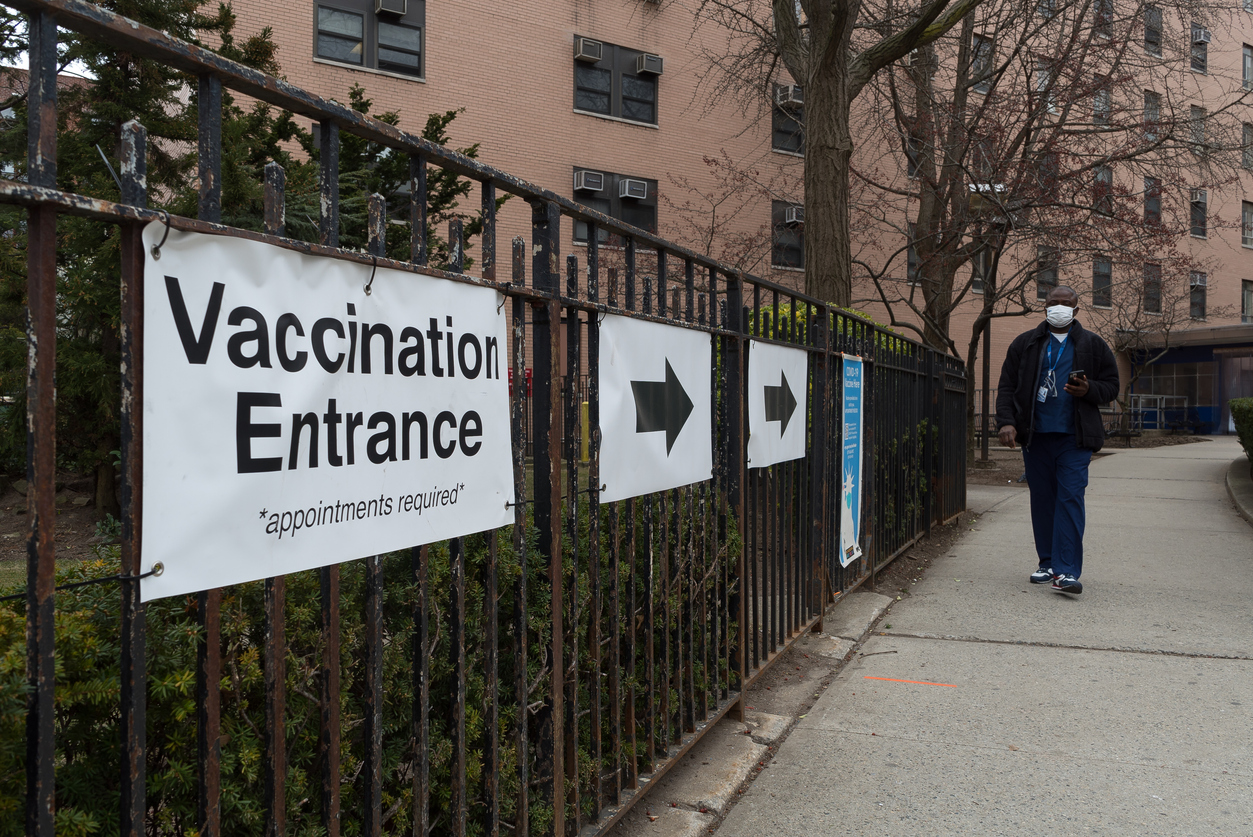New measurement scale offers data insights and communication strategies
A new study of COVID-19 vaccine acceptance and hesitancy in the U.S. by researchers at the CUNY Graduate School of Public Health and Health Policy (CUNY SPH) offers strategies to accelerate vaccine usage and counter resistance among the one-in-five Americans still unwilling to take the shot.
The study, published in Nature Scientific Reports, states that while vaccine mandates are likely to be accepted, additional effective, targeted interventions to enhance these factors and increase vaccine uptake are urgently needed. It also focuses on the predictive value of COVID-VAC, a new scale for measuring vaccine acceptance, which contains six items to gauge perceptions of risk, trust, safety, and efficacy.
“The COVID-19 pandemic continues to pose serious challenges to global health, and the United States leads with the highest number of deaths of any country in the world,” says CUNY SPH Senior Scholar Jeffrey Lazarus, one of the study’s lead authors. “Although a majority of American adults have now received at least one dose of a COVID-19 vaccine, strategies for increasing acceptance are needed now to counter trends of slowing vaccination rates and missed second shots.”
For the study—one of the first to examine changing attitudes in the U.S. towards COVID-19 vaccine acceptance since the vaccines were made available—the researchers surveyed 6,037 adults in the four largest U.S. metropolitan areas (New York, Los Angeles, Dallas, and Chicago) and nationwide.
The study offers insights into motivating vaccine acceptance, including that those who tested positive or had a family member test positive for COVID-19 were more likely to accept vaccination. Other levers of change included the finding that a majority was in favor of vaccine mandates from employers (57.7 percent) and universities (62.3 percent). Lower income and conservative ideology, but not race, were strongly associated with vaccine unwillingness. Returning to work was a top priority expressed by conservative respondents and may be an effective motivator for this group to vaccinate.
The study found no consistent racial patterns to vaccine hesitancy. For example, in the NY and LA metropolitan areas, White respondents were more likely than Black respondents to express COVID-19 vaccine unwillingness, while the reverse was true in the Chicago and Dallas metropolitan areas.
“These findings caution against demographic generalizations and emphasize the importance of assessing local context when tailoring interventions and messaging,” says CUNY SPH Dean Ayman El-Mohandes, the study’s first author. “Stereotyping racial attitudes could even lead to disenfranchisement of communities of color that are increasingly well-motivated to participate in vaccination programs.”
A key finding was that the COVID-VAC tool can be applied to specific populations, for example vaccine hesitant and vulnerable groups, to inform and provide strategic guidance to policymakers and healthcare providers both domestically and globally.
The tool found that nationally there is agreement on key elements of trust in the vaccine:
• 84 percent of participants agreed that COVID-19 is a dangerous health threat.
• 78.3 percent agreed that COVID-19 can be prevented by vaccination.
• 74.2 percent agreed that the risks of COVID-19 are greater than the risks of the vaccine.
• 72.9 percent did trust in the science behind the vaccines.
• 69.6, a slightly lower but still solid majority, believed that COVID-19 vaccines would be distributed fairly “to everyone and everywhere.”
In April 2021 when the study was conducted, 78.67 percent of respondents had either received one or two doses of a vaccine (32.6 percent) or planned to do so (46 percent). Currently 78 percent of the nation’s population 12 years or older has received at least one does of a vaccine, according to the CDC.
Conversely, one-fifth (21.4 percent) of the respondents indicated an unwillingness to vaccinate, expressing concerns about vaccine efficacy and safety, and questioning the disease’s severity. While the main reason for unwillingness was “waiting to see if there are no serious complications,” (58.5 percent of unvaccinated respondents), more than half (53.5 percent) said nothing would change their minds.
“This study provides an in-depth understanding of perceptions underlying COVID-19 vaccine acceptance in the U.S. and describes motivational factors that could be used to sway those who are unsure or opposed to vaccination,” says Dr. El-Mohandes.
The primary motivators among vaccinated individuals to get vaccinated were “protecting myself against COVID-19” (42.3 percent nationally), followed by “protecting my family and friends,” (30 percent nationally) and should remain at the core of vaccine communications messages, the study says.
“Continuing to encourage testing will counter misconceptions that the spread of the pandemic is over. As people continue to test positive across age, race, and ideology, this may encourage them to accept vaccination as a necessary means of protection,” Lazarus says.
National and Urban study:
The four metropolitan areas were chosen to cover all four U.S. geographical regions with a significant combined proportion of the U.S. population, their combined numbers of COVID-19 cases as a percentage of the U.S. total, and their disproportionate influence on the national economy, cultural and informational trends. Their high population density, greater reliance on public transport and status as major hubs of vacation and business travel also put them at particular risk for pandemic spread. Residents of these metropolitan areas have higher educational attainment and median income than national averages, but share equal or higher levels of poverty and unemployment; their racial and ethnic mix tends to favor higher representation of people of color.
For more information contact:
Ariana Costakes
Communications Editorial Manager
ariana.costakes@sph.cuny.edu
About CUNY SPH
The CUNY Graduate School of Public Health and Health Policy (CUNY SPH) is committed to promoting and sustaining healthier populations in New York City and around the world through excellence in education, research, and service in public health and by advocating for sound policy and practice to advance social justice and improve health outcomes for all.




